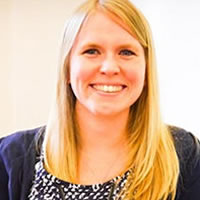About
The Visiting Fellowship Scheme provides an opportunity for the Peter McMullin Centre on Statelessness to engage with a range of different statelessness scholars and to expand international research collaborations. The Centre offers Visiting Fellowships for up to two months. Visiting scholars are provided with a workspace, computer and library access. They are encouraged to give a short work-in-progress seminar and to participate in the academic life and work of the Centre including events and workshops.
Funding
The Centre accommodates both self-funded Visiting Fellows and those seeking a scholarship to cover parts of their expenses. Applications from self-funded Visiting Fellows will also be considered outside the application period, subject to the availability of space. Funding of up to AU$6000 is available for Visiting Fellows from overseas and AU$3000 for domestic Visiting Fellows towards the costs of travel to, and accommodation in, Melbourne. As such, applicants should consider the cost implications before applying, as there may be additional expenses not covered by the Fellowship. Visiting Fellows from outside Australia are responsible for obtaining and funding any necessary visas or insurance. Fellowships are funded by the Peter McMullin Centre on Statelessness.
Application Process
The Centre acknowledges the diversity of individuals doing research or working on statelessness around the globe. Applications are invited from researchers ranging from PhD students, postdoctoral researchers to tenured academics to visit the Centre. Applications from non-academic visiting professionals will also be considered, if they propose an applied research project of relevance to the work of the centre. Researchers with lived experience of statelessness are encouraged to apply.
The Visiting Fellowships are to be taken up within the time frame from February to December 2024. Once accepted, Visiting Fellows are encouraged to consider timing their visits to coincide with any major Centre activities.
Applications must include the following in one PDF document:
- Curriculum vitae and list of publications
- Research plan (maximum 1000 words), outlining the research, proposed activities/collaboration during visiting period and contribution to the work of the Centre
- Proposed dates of the visit in 2024
- Indication of whether a Visiting Fellowship grant is sought. For those seeking funding, please provide a brief justification, including any other funding sought or secured to cover expenses (maximum 250 words)
- One letter of reference (for PhD students letter of reference from the PhD supervisor; for non-academic visitors letter of support from employer or other entity the visitor is professionally associated with).
Please direct any inquiries about the Visiting Fellowship program to PMCS Senior Research Fellow, Dr Jordana Silverstein (jordys@unimelb.edu.au). Applications should have in the subject line “Visiting Fellowship Application” and be submitted to Dr Jordana Silverstein (jordys@unimelb.edu.au) by the closing date of 1 August 2023. Applicants will be advised of the outcome by the end of August 2023.
Visiting Fellows 2023
Janepicha Cheva-Isarakul, Lecturer, Social Policy and Sociology, Victoria University of Wellington
Proposed Research: Childhood statelessness, particularly in northern Thailand
Nyi Nyi Kyaw, Research Chair on Forced Displacement in Southeast Asia, Chiang Mai University
Proposed Research: The Experience of Displaced, De Facto Stateless Myanmar People in Thailand
Dorota Pudzianowska, Associate Professor of Law, Warsaw University
Proposed Research: Statelessness in Poland
Victoria Reitter, PhD fellow, Sociology, University of Salzburg
Proposed Research: Statelessness and its production in Austria
Visiting Fellows 2020
Zahra Albarazi, Statelessness expert and consultant, United Kingdom
Proposed Research: Statelessness in the Middle East and North Africa (MENA)
Talha Abdul Rahman, Legal Practitioner before Supreme Court, New Delhi, India
Proposed Research: Assessment of adjudicatory processes regarding the National Register of Citizens (NRC) for the state of Assam in India
Visiting Fellows 2019
Janepicha Cheva-Isarakul, PhD Candidate (anthropology), Victoria University of Wellington
Proposed research: Stateless Shan in Thailand; and collaborator on the Centre’s nomadic peoples & statelessness project.
Heather Alexander, PhD Candidate (law), Tilburg University, The Netherlands
Proposed Research: Nomadic peoples and statelessness.
Julija Sardelic, Marie Curie Postdoc Fellow, Leuven International and European, University of Leuven, Belgium
Proposed Research: Statelessness and citizenship of Roma in Europe.
Nyi Nyi Kyaw, Visiting Fellow, Myanmar Studies Program, ISEAS Yusof Ishak Institute, Singapore
Proposed Research: How arbitrary state policies and practices in Myanmar have made citizenship regressively inaccessible for Rohingya.
Lindsey Kingston, Associate Professor, Director, Institute for Human Rights and Humanitarian Studies, Webster University, USA
Proposed Research: Conceptualising “statelessness-as-punishment” (denationalisation).
Past Visiting Fellows
-
Dr Laura van Waas

Dr Laura van Waas Dr. Laura van Waas is a founder and Co-Director of the Institute on Statelessness and Inclusion as well as Assistant Professor at the Department of European and International Law at Tilburg Law School in the Netherlands. Laura’s PhD manuscript, ‘Nationality Matters’ (Intersentia, 2008), is widely used as a reference for understanding international statelessness law by researchers and practitioners all over the world.
In more than a decade of working on the issue of statelessness, Laura has carried out a wide array of research and teaching projects, both within academia and for the Office of the United Nations High Commissioner for Refugees (UNHCR) and other actors. She has worked as a consultant for UNHCR’s headquarters in Geneva as well as the regional offices in Beirut and Bangkok. She has supervised or conducted studies on statelessness for, among others, Plan International, the Office of the United Nations High Commissioner for Human Rights, Open Society Foundations, the Women’s Refugee Commission, the United States Department of State, the European Parliament and the Norwegian Refugee Council.
During Laura’s visit to the Centre (from October – December 2017), she worked closely with the Centre’s Director, Michelle Foster, on the first stages in the design of a collaborative teaching project that involves developing a curriculum on statelessness as well as exploring other areas for research-related collaboration.